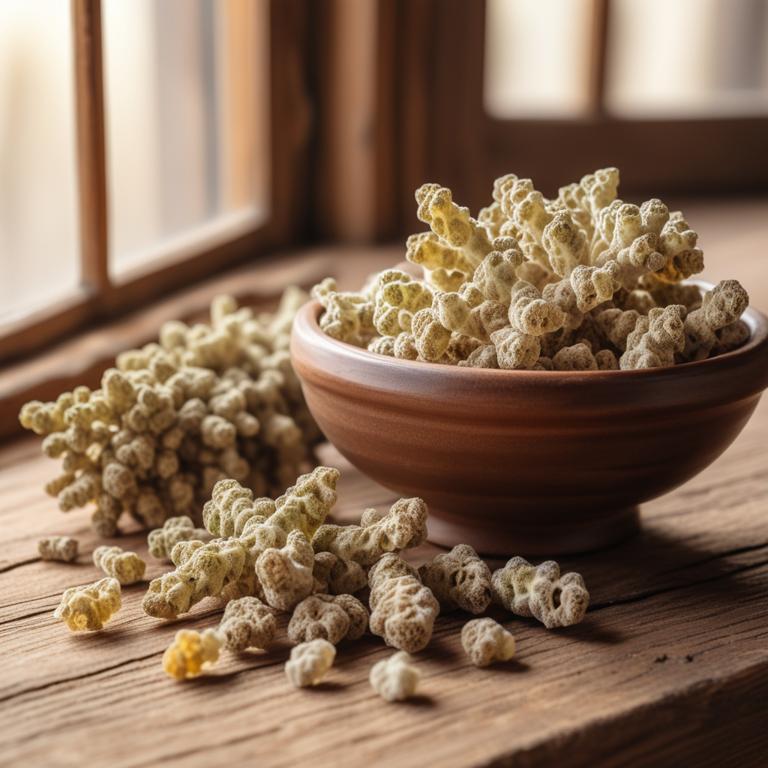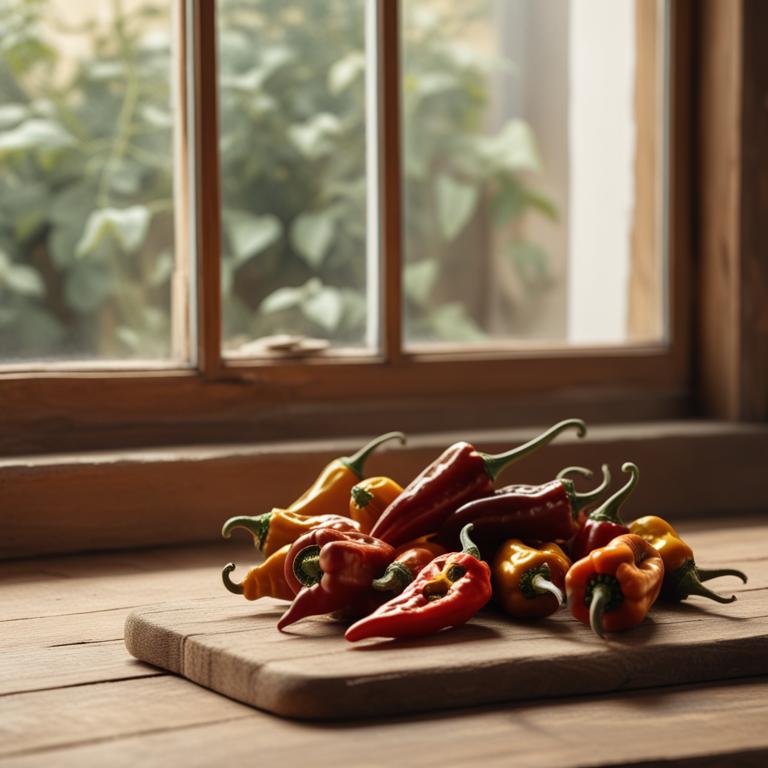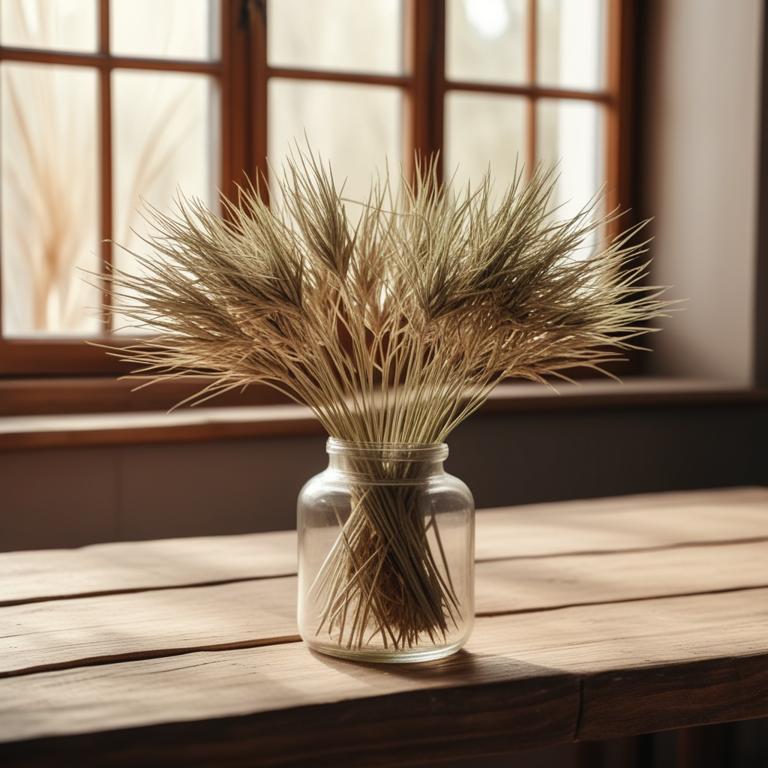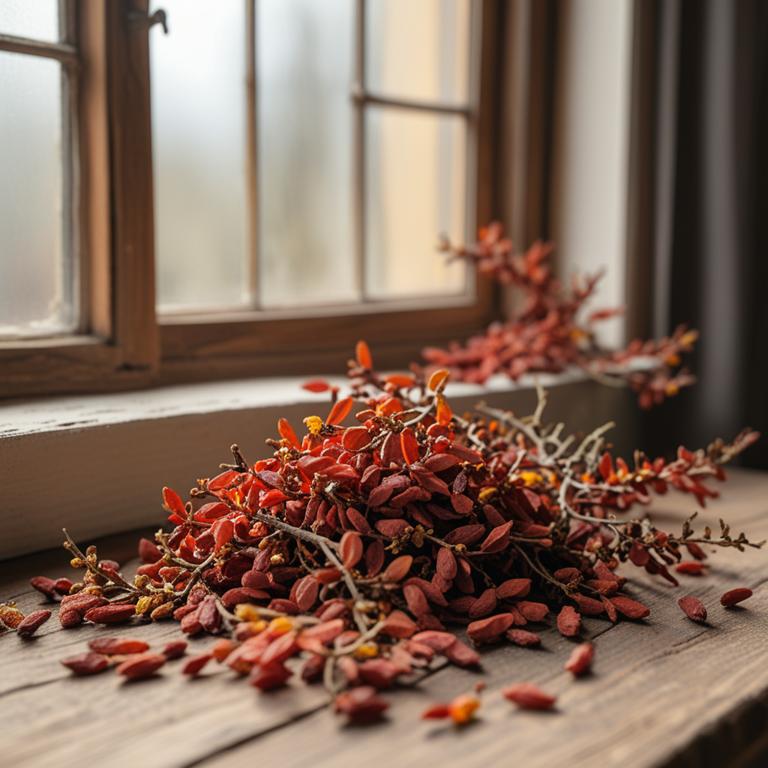Updated: Dec 1, 2024
Bursitis: Causes, Natural Herbs, and Proven Preparations

Bursitis is a painful condition that affects the small fluid-filled sacs, called bursae, that cushion joints and reduce friction between moving parts.
When these sacs become inflamed, it can cause swelling, redness, and stiffness in the affected area, making everyday activities like walking, bending, or even getting dressed a real challenge. Bursitis often develops from repetitive motion, overuse, or injury to the joint, which can cause the bursae to become irritated and inflamed. Other factors, such as age, obesity, and certain medical conditions, can also increase the risk of developing bursitis. Fortunately, there are some herbal remedies that can help alleviate the symptoms and promote healing.
Turmeric, with its anti-inflammatory compound curcumin, is a popular natural remedy for bursitis. Ginger, another anti-inflammatory herb, can also help reduce pain and swelling. Willow bark, containing salicylic acid, similar to aspirin, can also provide relief from pain and inflammation. To use these herbs, you can try making teas by steeping dried turmeric, ginger, or willow bark roots in hot water. You can also take them in capsule or tincture form, following the recommended dosage.
Additionally, applying a warm compress or poultice made from these herbs to the affected area can help reduce pain and promote healing.
Table of Contents
- What leads to the occurrence of bursitis?
- How can herbs be beneficial in managing bursitis?
- What medicinal herbs are most often associated with bursitis treatment?
- What herbal treatments are typically used to alleviate bursitis?
- What herbs should be avoided or used with caution when you have bursitis?
- FAQ
What leads to the occurrence of bursitis?
The main causes of bursitis are usually related to how we use or injury our joints.
Trauma, or injury, can cause bursitis when it puts pressure on a bursa, leading to swelling and inflammation. This can happen if you fall, get hit, or even just twist your ankle or knee the wrong way. Overuse is another common cause of bursitis. When you repeat the same motion over and over, like running or lifting weights, it can put a lot of stress on your joints and bursas, leading to inflammation and swelling. This is often seen in athletes or people who do repetitive tasks for their job.
Infection is also a possible cause of bursitis. When bacteria enter the bursa, either through a cut or scratch, it can cause an infection that leads to swelling and inflammation. This type of bursitis is more serious and needs prompt medical attention. Finally, autoimmune disorders, like rheumatoid arthritis, can also cause bursitis. In these cases, the body's immune system mistakenly attacks the bursa, leading to inflammation and swelling.
This type of bursitis is often seen in people with chronic autoimmune disorders.
How can herbs be beneficial in managing bursitis?
Using herbs for bursitis can bring several benefits.
One of the main advantages is that they are natural and non-invasive, which means you can try them without worrying about harsh side effects. These herbs can help reduce inflammation and swelling, making it easier to move your joints and perform daily activities.
Some herbs are also known to have pain-relieving properties, which can provide relief from the discomfort and aching associated with bursitis. Additionally, herbs can be used topically, such as in the form of a cream or salve, allowing you to target the affected area directly.
This targeted approach can lead to faster relief and better results compared to taking medication orally.
What medicinal herbs are most often associated with bursitis treatment?
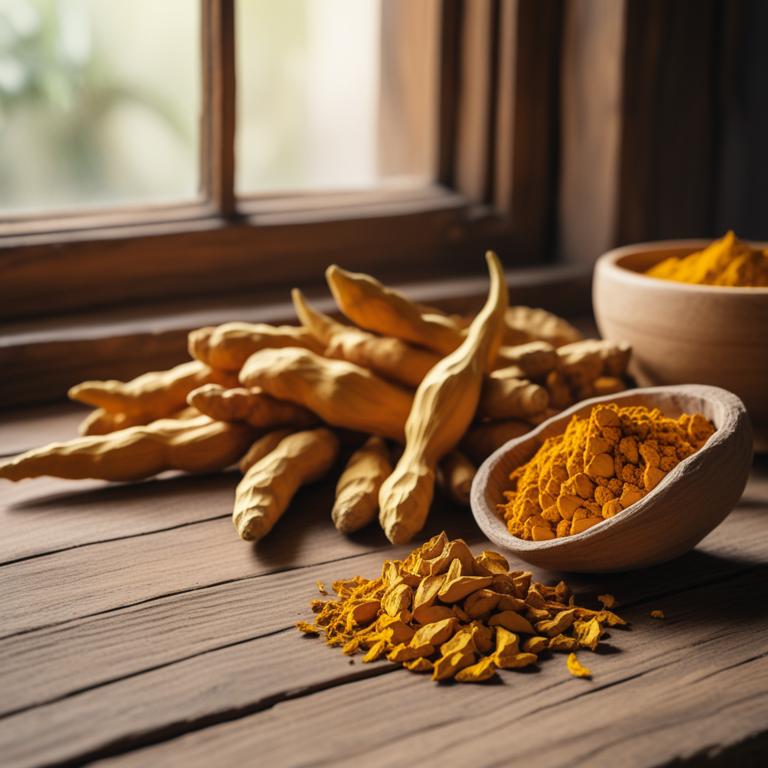
Herbs can be a great addition to your treatment plan if you're dealing with bursitis, a condition that causes pain and inflammation in the joints.
One of the key players in fighting bursitis is turmeric, which comes from the Curcuma longa plant. Turmeric contains a powerful compound called curcumin that has potent anti-inflammatory properties, which can help reduce swelling and ease pain in the affected area. Another herb that's great for bursitis is licorice root, extracted from Glycyrrhiza glabra. It has anti-inflammatory properties that can help calm down the inflammation and reduce pain. Licorice root also has antioxidant properties that can help protect the joint from further damage. Ginger, from the Zingiber officinale plant, is another herb that can be beneficial for bursitis.
It has anti-inflammatory compounds that can help reduce pain and swelling, and it also has antioxidant properties that can help protect the joint. Arnica montana is a popular herb used to treat joint pain, and it's often used topically to reduce inflammation and ease pain. It's thought to work by reducing inflammation and promoting healing in the affected area. Cayenne pepper, from the Capsicum annuum plant, contains capsaicin, a compound that can help reduce pain by blocking the production of a chemical called substance P, which transmits pain signals to the brain. This can provide quick relief from pain and discomfort. When used in combination, these herbs may be able to provide relief from the pain and inflammation associated with bursitis. They can be consumed as teas, added to food, or applied topically in the form of creams or ointments.
However, it's essential to talk to your healthcare provider before trying any new remedies, especially if you're already taking medications or have underlying health conditions.
What herbal treatments are typically used to alleviate bursitis?
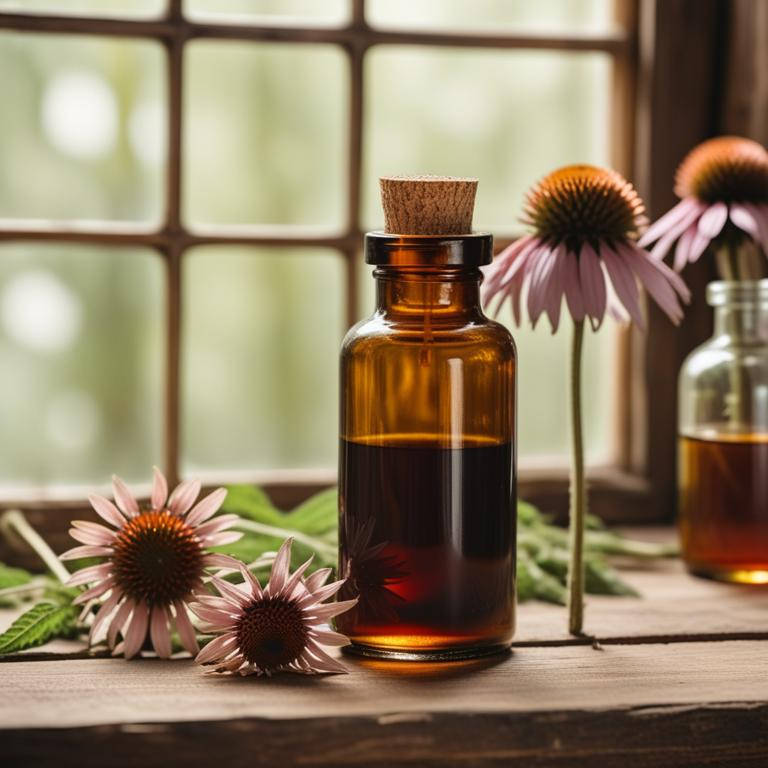
Herbal preparations can be a great way to manage bursitis symptoms.
A decoction is a liquid solution made by steeping herbs in hot water, which helps to ease pain and inflammation in the affected area. Turmeric and ginger decoctions are particularly helpful because they contain compounds that reduce swelling and fight off infection. A salve is a topical cream or ointment that can be applied directly to the bursa to soothe and calm the area. Arnica salve is commonly used for its anti-inflammatory properties, which help to reduce pain and swelling.
Herbal tinctures are liquid extracts that can be taken orally to relieve bursitis symptoms. Willow bark tincture contains salicin, a compound similar to aspirin, which helps to reduce pain and inflammation. Capsules are another form of herbal supplement that can be taken orally. Capsules made from herbs like boswellia and devil's claw help to reduce inflammation and pain by blocking the production of inflammatory chemicals in the body. An herbal infusion is a liquid solution made by steeping herbs in hot or cold water, and can be used to make tea.
Herbal infusions like willow bark and meadowsweet are helpful in reducing pain and inflammation associated with bursitis.
Additional Resources:
What herbs should be avoided or used with caution when you have bursitis?
If you have bursitis, it's best to be cautious with certain herbs that might make inflammation worse.
Cinchona officinalis, for instance, contains compounds that can increase heart rate and blood pressure, which could worsen swelling and pain in the affected area. Hypericum perforatum, or St. John's Wort, has anti-inflammatory properties, but it can also thin your blood, which might lead to more bleeding and further irritation in the bursa.
Ginkgo biloba can also cause bleeding problems due to its ability to thin blood, making it a potential risk for people with bursitis. Vaccinium myrtillus, also known as bilberry, can be a problem because it has anti-inflammatory properties that might make your bursitis symptoms worse. Aloe barbadensis, commonly used for its soothing effects, can actually make inflammation worse due to its ability to cause the body to release more histamine, a chemical that can lead to swelling and pain.
These herbs might not be the best choice if you're looking to alleviate bursitis symptoms, and it's always a good idea to consult with a healthcare professional before using them.
FAQ
Are there any specific herbs that can prevent bursitis?
Turmeric contains a compound called curcumin, which has anti-inflammatory properties that may help prevent bursitis.
Ginger also has anti-inflammatory properties and is sometimes used to reduce pain and swelling associated with the condition.
These herbs can be consumed as supplements or added to food for potential benefits.
Is it safe to use herbal remedies for bursitis during pregnancy?
If you're pregnant and have bursitis, it's best to be cautious with herbal remedies.
Some herbs, like willow bark and ginger, can help with pain relief, but others may not be safe for your baby.
Always check the ingredients and potential effects on pregnancy before trying any herbal remedy.
Are there any herbs that can reduce the frequency of bursitis?
Turmeric contains a compound called curcumin, which has anti-inflammatory properties that may help reduce bursitis symptoms.
Ginger, another herb, also has anti-inflammatory effects that could help alleviate bursitis.
These herbs may help reduce the frequency of bursitis by minimizing inflammation and promoting healing in the affected area.
Can i combine different herbal remedies for bursitis?
You can combine different herbal remedies for bursitis, but be cautious.
Some herbs, like willow bark and ginger, have anti-inflammatory properties that might help with pain and swelling. However, combining them with other herbs, like turmeric, could potentially interact or amplify their effects.
It's a good idea to start with small amounts and observe how your body reacts.
Related Articles
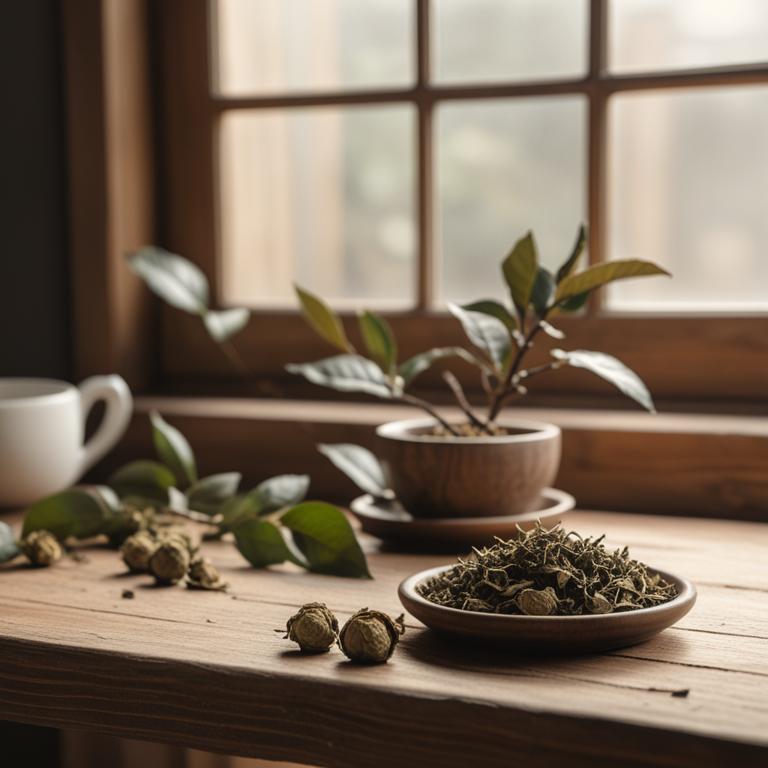
Jaw Pain: Causes, Herbal Remedies, and Homeopathic Preparations
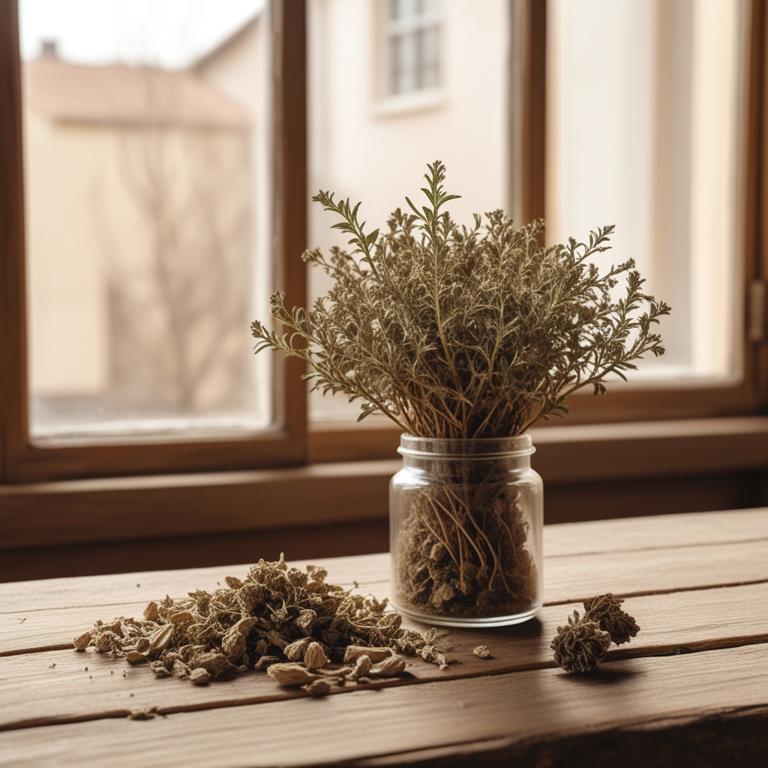
Relieving Muscle Pain: Understanding Its Causes and Herbal Remedies
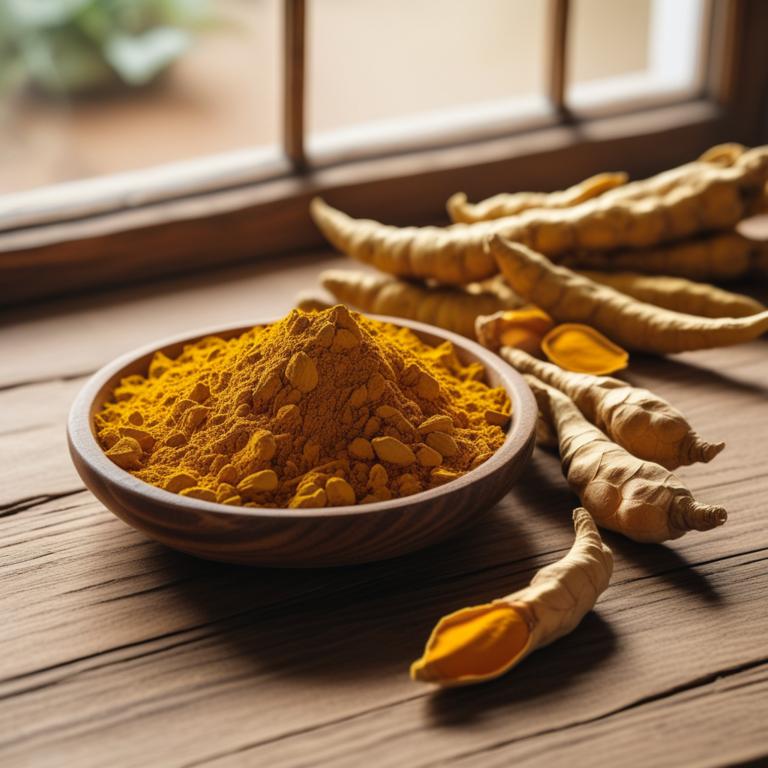
Causes, Symptoms, and Herbal Preparations for Plantar Fasciitis
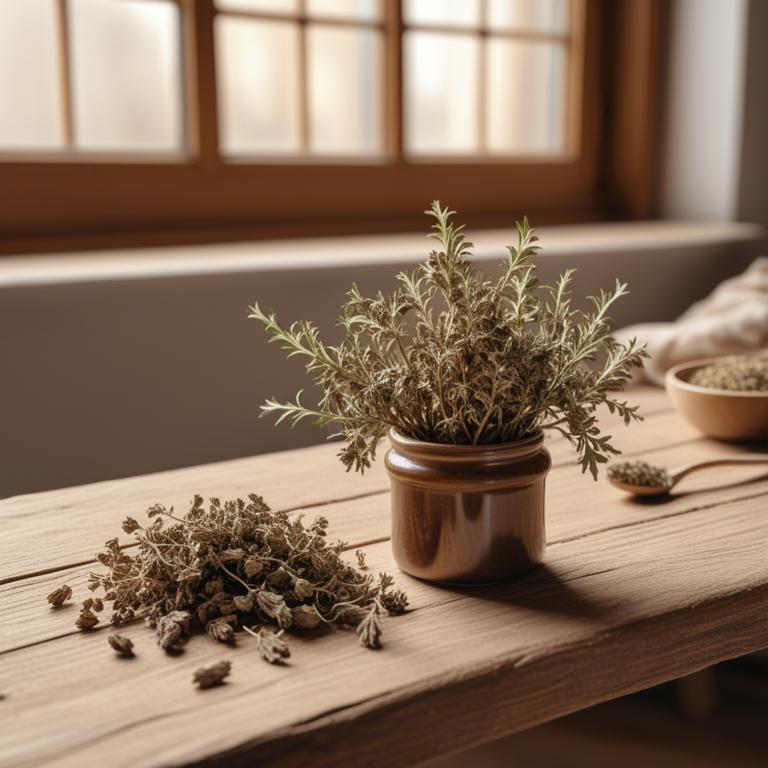
Bone Health: A Comprehensive Guide to Causes and Herbal Preparations
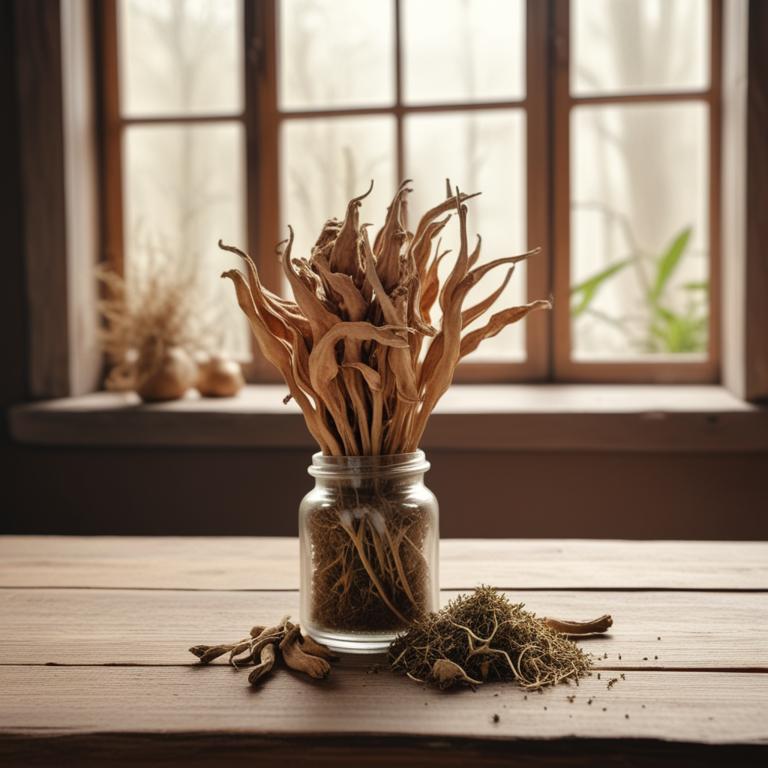
Tendinitis Relief: Exploring Medicinal Herbs and Their Preparations
